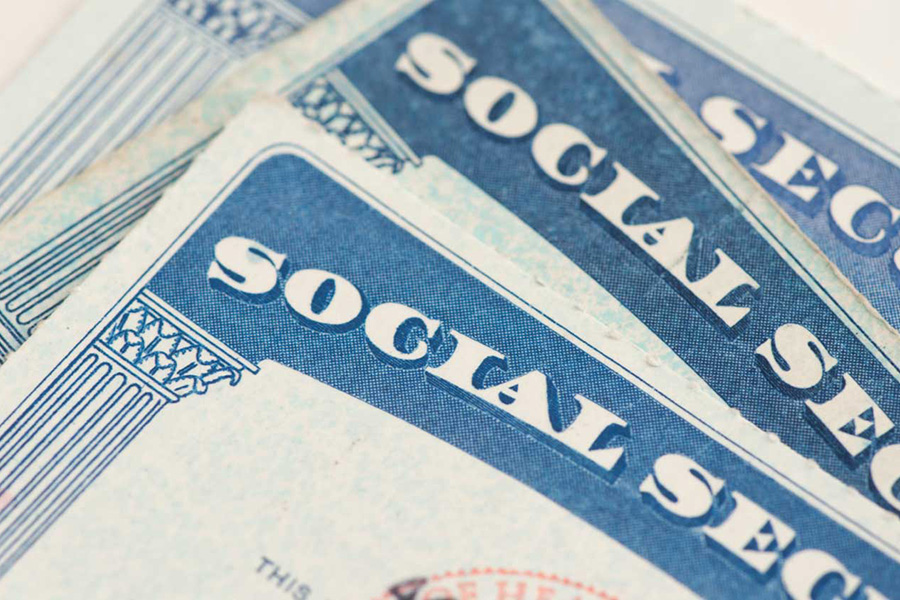An upcoming judicial ruling could determine whether the Social Security Administration can refuse to recognize the existence of a common-law marriage, even if a state court has already recognized it, and deny a request for monthly survivor benefits.
It took two years for gay widower John D. Roberts to receive spousal-survivor benefits from SSA after his spouse, Bernard O. Wilkerson, died in December 2015.
Roberts, 64, of North Philadelphia, applied for the monthly benefits in February 2016 and filed a federal lawsuit against SSA in May 2017 after being repeatedly denied.
In February 2016, SSA initially denied Roberts’ request on the basis that he and Wilkerson were only officially married for three months before the latter died. SSA requires a marriage to exist for at least nine months before granting monthly survivor benefits.
In September 2016, Roberts obtained a ruling from the Philadelphia Orphans’ Court declaring the couple was in a common-law marriage dating back to July 4, 1990.
Despite Judge George W. Overton’s ruling and a subsequent federal lawsuit filed by Roberts against SSA, the agency still refused monthly benefits to Roberts.
“[I]t would be helpful to receive documentary evidence, which could include, but is not limited to, mortgages, leases, utility bills, [and/or] joint checking accounts showing a home address, or any other documents showing that Mr. Roberts and Mr. Wilkerson constantly cohabitated during the period in question,” SSA wrote to Patrick Yingling, an attorney for Roberts, on Nov. 20, 2017.
In December 2017, after Yingling submitted additional documentation, SSA granted monthly benefits to Roberts retroactive to January 2016, the month after Wilkerson died.
In court papers, SSA asserts it granted the benefits not because of Roberts’ lawsuit but because he eventually produced “clear and convincing” evidence that a common-law marriage existed.
SSA continues to hold the position that it can refuse to recognize a common-law marriage and deny a request for monthly survivor benefits until such evidence is produced, even in cases where a state court has already recognized the marriage.
Yingling, who is based in Chicago at the Reed Smith law firm, recently requested about $28,000 from SSA to cover litigation fees and costs, citing SSA’s “unjustified legal position.”
U.S. District Judge Berle M. Schiller must decide whether to grant Yingling’s request. Depending on how Schiller crafts his ruling, SSA could be forbidden from refusing to recognize a common-law marriage if that marriage already has been recognized by a state court.
“Social Security cannot second-guess a Pennsylvania court that recognizes a common-law marriage,” Yingling told PGN in a March 30 email. “We are hoping that a favorable ruling in this federal action will prevent Social Security from second-guessing Pennsylvania marriage rulings in the future.”
Yingling said a favorable ruling from Schiller “would incentivize other attorneys to take on pro-bono cases, and it would discourage the government from taking similar unjustified legal positions.”
Yingling also emphasized the importance of the case to the LGBT community.
“If same-sex couples need to prove that they were married before 2014, they can attempt to show a Pennsylvania state court that they had a common-law marriage. But if Social Security is allowed to second-guess state-court rulings on common-law marriages, then same-sex couples will continue to experience the discriminatory effects of the [prior] same-sex marriage ban. That’s not right. And that’s why this case is important.”
In a March 28 legal brief, SSA opposed paying any money to the Reed Smith law firm. SSA reiterated that it acted properly in the dispute, citing the Social Security Act, federal case law and “sovereign immunity” in support of its position.
David A. Degnan, an assistant U.S. attorney based in Philadelphia who’s representing SSA in the matter, declined to comment for this story, citing the ongoing litigation.

